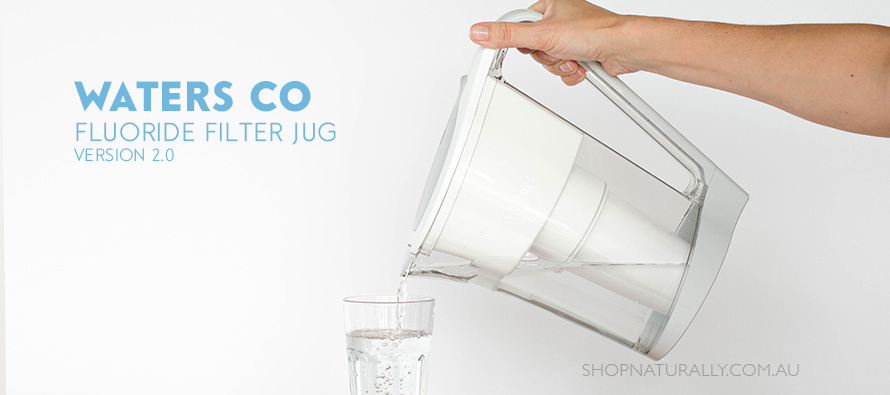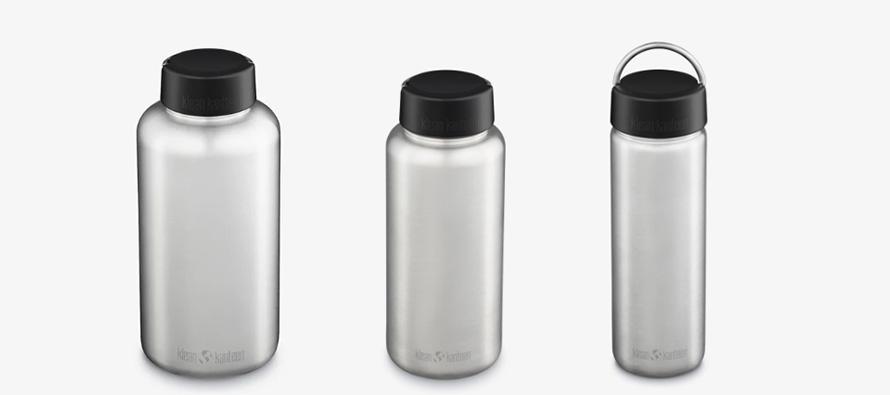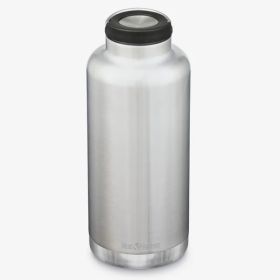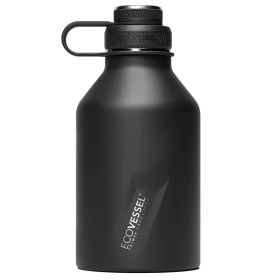FAQ: Hydration
If you ask anyone how much water they're supposed to drink in a day, the typical answer is 2 litres. This is one reason why the 2 litre water bottle is one of the most popular sizes in our store. This isn't always the case and there are many variables to consider when deciding how much water to drink in a day. This month's Nourish Magazine has a great article on the subject, so we thought this was a perfect time to make a summary of the information provided in the article along with some conversations we've had with our consulting naturopath.
How much water should I drink in a day?
According to The Institute of Medicine, men should drink around 3 litres and women should drink around 2.2 litres. In any give day, the averages person will also get around 600ml of liquid from food they eat. Of course, you then need to factor in the size of the person and how much activity they're doing each day, and even the climate. Anything that causes you to sweat (whether it's exercise or the weather) will mean that you'll need to replace those fluids.
How do I know if I'm dehydrated?
The colour of your urine is a pretty good indicator of whether your body is hydrated or dehydrated. A light and clear colour will generally mean you're well hydrated. When it starts to look like the colour of apple juice, then you're probably dehydrated. Just keep in mind that your urine will always be darker first thing in the morning and if you take a lot of water soluble vitamins (B & C), any excess that you body can't use will be excreted in your urine, and it will usually look yellow, a lot brighter than the dehydrated apple juice colour, so be mindful of that if you decide to use this method to check.
Can't I just drink when I'm thirsty?
You should absolutely drink when you're thirsty, but not excessively. Hydration is a balancing act. It is possible to drink too much water and when you do, blood sodium levels drop. Those who exercise in excess should make sure they understand the volumes of water to drink, when it's safe to do so and how to get their electrolytes back in balance after a big race. Large volumes of water, no food and no electrolyte replenishment is a really dangerous combination. I strongly urge anyone embarking on long events to speak to a health professional (ie: a nutritionist) to learn how to keep their electrolytes and water intake in balance. If you do become dehydrated, the University of Rochester Medical Center website suggests small to moderate amounts of fluid frequently until you feel hydrated again. Severe dehydration can be life threatening, so don't treat it lightly and don't guzzle water when you feel this way.
Have you ever wondered why the elderly are more likely to become dehydrated in hot weather? As you get older, your sense of thirst declines. The elderly don't need more water, they just need to remember to drink at regular intervals, even if they're not thirsty. Monitoring the colour of urine is always helpful in this situation too.
Can I only drink water to rehydrate?
While caffeine technically increases water excretion from the body, the article does say that the majority of water from coffee and tea will hydrate the body. That said, it shouldn't form the major part of your daily hydration. Alcohol, however, causes you to excrete more fluid than you consume, especially wine and hard liquor. If you're going to go out and party, take a drink of water in between each alcoholic beverage to rehydrate.
Those who do heavy exercise and sweat a lot should consider replenishing their electrolytes as well as their fluid after exercise. As mentioned above, heavy sweating and large water consumption is dangerous. You can buy electrolyte drinks anywhere, and we are going to be stocking one, but it does have sugar in it too for a fast glucose hit. The electrolytes you're looking to replenish are sodium, potassium, chloride, calcium and magnesium. If your electrolytes are out of balance, your body won't absorb the water you drink properly.

Should I filter my drinking water?
It's true that Australia has one of the safest water supplies in the world, so you don't have to if you don't want to. However, a lot of people choose to filter their drinking water. We have a variety of fluoride water filter options in store along with standard ones too. They vary from filters inside water bottles to filter jugs and benchtop units.
Why do you want to filter fluoride out of your drinking water? We're leaving this one up to you as a personal choice, but there's one piece of information most people aren't aware of, and it has nothing to do with dental hygiene or tooth decay. Did you know that magnesium binds to fluoride? When this happens, it drains magnesium from your body. Magnesium is a really important mineral. Not only is it one of the electrolytes you lose when you sweat, but it also plays a vital role in muscle & nerves, creating energy, assisting in digestion and many other bodily functions. If you twitch, it can be a sign of magnesium deficiency and should be addressed with a health care professional.
Regardless of whether you choose a water filter that removes fluoride or not, it's best for your wallet and the environment if you get yourself a good quality water bottle and refill at home.
Further reading
- University of Rochester Medical Centre
- Huffington Post Dehydration Myths
- Magnesium - The Missing Link to Better Health (Mercola)









